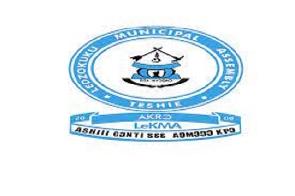 The Ledzokuku Municipal Assembly
The Ledzokuku Municipal Assembly
The Ledzokuku Municipal Assembly (LeKMA), which is in the Greater Accra Region, has reported that some 785 buildings and other structures have illegally been sited in the course of the Kordjor stream, thereby impeding its free flow into the Kpeshie Lagoon.
The Assembly says the situation and encroachment on the Kpeshie Lagoon wetlands by developers have combined to increase the flood risk of LeKMA and other areas in that part of the Greater Accra Region.
Any time information about such lawlessness is put out, it is easy to guess that public institutions and their officials want to blame perpetrators of the lawless acts.
However, some of us think that the institutions and the officials should be humble enough to take the blame rather than pass the buck.
For the current matter, LeKMA should stop wasting public ears and do the needful.
What is the mandate of LeKMA and, for that matter, other district assemblies in relation to town planning, building permit, encroachment, flood prevention, road construction, allocation of land for construction of public facilities and other such things?
We do not believe that the structures sprang up overnight.
What did LeKMA do when some developers started building on the course of the Kordjor stream and others encroaching on its nearby land?
Did the LeKMA take any action when developers started filling part of the stream’s course in order to put up their structures?
The truth is that the whole State called Ghana seems to have ignored the strict application of the law and so institutions of state also close their eyes to lawlessness.
What is happening now is just getting some scapegoats to give the impression that the law is being applied.
If it were elsewhere, the LeKMA Municipal Chief Executive (DCE) would have resigned or been fired long before getting the guts to tell the Minister of Works and Housing about the problem during the minister’s visit to the area to assess the situation.
Whatever excuses LeKMA gives about challenges it faces with regard to the problem on hand could be heard but should not be entertained as normal.
Is it something to rejoice about after taking inventory of the problem last year and submitting it to the Regional Coordinating Council, without any legal action taken even though notices had been issued to the developers to stop work?
Why should LeKMA ask the Ministry of Works and Housing to intervene in the matter when, as a public entity, it has the power to take legal action against the developers after some of them painted over the notices or broke the structures on which the Assembly had written the warning notices?
If the current administrators of LeKMA cannot do their work, they should give the chance to people who have the courage to help build the nation as expected.
It is clear from the attitude of LeKMA that institutions of state are giving priority to personalities in the discharge of the duties to the neglect of the law.
It should be clear to every Ghanaian that until the whole system of nation building is done with recourse to the law, the country would never see the expected level of development.